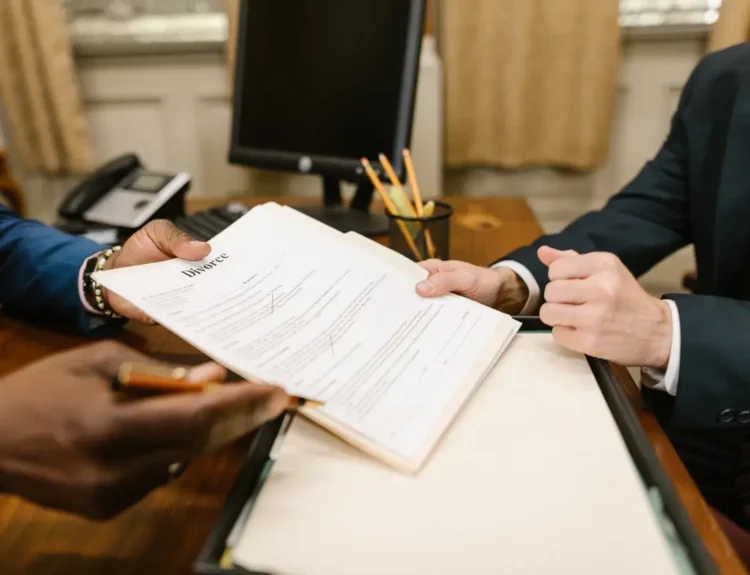Table of Contents
Introduction
In the complex intersection of theology and law, canon lawyers serve as crucial experts in interpreting and applying canon law, the legal framework governing the internal affairs of the Catholic Church. Rooted in centuries of ecclesiastical tradition, canon law regulates church governance, sacraments, clerical conduct, and disciplinary measures. Canon lawyers are trained professionals who navigate these sacred statutes to uphold ecclesial order and justice. This article offers a comprehensive understanding of what canon lawyers do, how they are trained, and why their role is vital within the Church and related institutions.
What is Canon Lawyer?
A common question among students of law and theology is, “What is canon lawyer?“ A canon lawyer is a legal expert specializing in canon law, primarily within the Roman Catholic Church, though similar roles exist in Eastern Orthodox and Anglican traditions. Canon lawyers are typically clergy or laypersons who have obtained advanced degrees in canon law (Licentiate or Doctorate in Canon Law) and are authorized to advise, represent, or judge in ecclesiastical legal matters.
Their work is not limited to theological abstraction. Canon lawyers perform real-world functions such as advocating in church tribunals, advising bishops and religious congregations, and ensuring compliance with Church statutes. Their expertise supports the moral and legal integrity of ecclesiastical institutions and contributes significantly to internal governance.
The Nature and Scope of Canon Law
Canon law is more than religious guidelines; it is a comprehensive legal system developed over nearly two millennia. Officially codified in the 1917 and revised in the 1983 Code of Canon Law, it governs all aspects of Church life—from liturgical practices to clerical discipline and marriage annulments.
Key areas covered by canon law include:
- Church Governance: Establishes roles, responsibilities, and hierarchical structure of bishops, priests, and laity.
- Sacramental Law: Regulates validity and licitness of sacraments like baptism, Eucharist, and marriage.
- Procedural Law: Covers judicial and administrative procedures within ecclesiastical courts.
- Penal Law: Outlines offenses and penalties, including excommunication and suspension.
- Canonical Marriage Law: Defines consent, impediments, and grounds for annulment.
Canon lawyers must be well-versed in both theological principles and juridical reasoning, making this specialization unique among legal professions.
Education and Training of Canon Lawyers
Becoming a canon lawyer requires specialized academic training. Candidates—often priests, seminarians, or qualified laypersons—typically enroll in a pontifical university or ecclesiastical faculty approved by the Holy See. The usual academic path includes:
- Licentiate in Canon Law (JCL) – Equivalent to a Master’s degree, typically completed in three years.
- Doctorate in Canon Law (JCD) – An advanced research degree involving a dissertation and further coursework.
Prerequisites often include a background in theology or philosophy. Instruction covers Church history, jurisprudence, ecclesiology, and Latin—the official language of canon law.
Graduates may go on to work in tribunals, diocesan chanceries, seminaries, or academic settings, providing both legal adjudication and scholarly interpretation of ecclesiastical norms.
Roles and Responsibilities of a Canon Lawyer
Canon lawyers operate within various ecclesiastical and quasi-ecclesiastical capacities. Their primary responsibilities include:
- Tribunal Advocacy: Represent clients—often in marriage annulment cases or disciplinary proceedings—before ecclesiastical courts.
- Judicial Offices: Serve as judges, defenders of the bond, or promoters of justice in church trials.
- Advisory Functions: Counsel bishops, religious orders, and Church institutions on canonical obligations and policy.
- Canonical Administration: Assist in drafting constitutions, managing parish structures, and ensuring legal compliance in ecclesiastical acts.
- Teaching and Research: Educate seminarians and students in canon law and publish scholarly work on ecclesiastical jurisprudence.
In every function, the canon lawyer upholds the dual mission of the Church: faithful adherence to doctrine and just application of its legal principles.
Importance of Canon Lawyers in Church Life
The work of a canon lawyer is vital in safeguarding the rights of the faithful, maintaining ecclesiastical order, and facilitating the proper functioning of the Church’s judicial system. Their role is especially prominent in:
- Marriage Nullity Tribunals: Evaluating petitions for annulments based on canonical grounds such as lack of consent or impediments.
- Clergy Discipline: Advising on and adjudicating issues involving clerical misconduct in accordance with due canonical process.
- Governance and Autonomy: Assisting religious congregations and dioceses in legal matters, ensuring autonomy while maintaining conformity with Church law.
Moreover, canon lawyers serve as a bridge between the spiritual mission of the Church and the practical administration of justice, embodying the Church’s commitment to fairness and pastoral care.
Canon Law Beyond the Catholic Church
While canon law is most developed in the Roman Catholic tradition, other denominations, such as the Eastern Orthodox Church and Anglican Communion, have their own systems of ecclesiastical law. These systems are influenced by different theological and historical contexts but share the aim of regulating church life in accordance with spiritual and moral doctrine.
Canon lawyers in these traditions often engage in comparative ecclesiastical studies, contributing to ecumenical dialogue and interfaith legal scholarship.
Conclusion
Understanding what is canon lawyer involves more than defining a legal title—it requires recognizing the deep integration of theology, law, and ecclesial mission that defines the role. Canon lawyers are indispensable figures in the Catholic Church and beyond, ensuring that the faithful are governed justly, sacraments are administered properly, and Church doctrine is upheld with both compassion and legal clarity.
Their contributions resonate across tribunals, seminaries, parishes, and religious orders, reflecting a unique vocation that combines spiritual devotion with legal expertise. As the Church navigates evolving pastoral challenges, the role of canon lawyers remains both relevant and indispensable.








